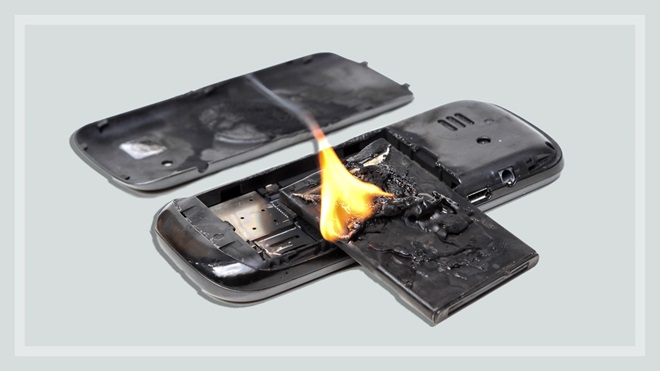Lithium-ion batteries are shaping up to be the ticking time bomb of the 2020s, and they're in all kinds of stuff these days.
Topping the list would be mobile phones, laptops, tablets, e-scooters, e-bikes and power tools.
It's estimated that Australian households will have an average of 33 devices powered by lithium-ion batteries by 2026.
The batteries can overheat or even explode if you use, charge or discard them the wrong way
The trouble is, the batteries can overheat or even explode if you use, charge or discard them the wrong way.
In other cases, lithium-ion batteries can overheat or short-circuit while they're still in the product.
Both malfunctions can start a fire or otherwise cause injury.
Apparently a lot of people have been mishandling lithium-ion batteries or buying products with faulty ones in recent years, though no one really knows how many incidents have occurred.
So far, one death has been reported in Australia from a fire started by a lithium-ion battery.
89,000 dangerous products recalled
But there could be further tragedies up the road. Over the past five years, the ACCC has received 231 product safety reports about goods whose lithium-ion batteries have posed a hazard.
Approximately 57 of those reports involved someone being injured, usually by burns, but the ACCC believes many incidents go unreported. Mobile phones and wearables such as smart watches and fitness trackers are usually the culprits.
Somewhere around 89,000 products with potentially self-destructing lithium-ion batteries have been recalled over the past five years, and there may be plenty more out there.
It's not just digital goods causing issues. LG Energy Solution Australia is recalling almost 17,000 lithium-ion home solar batteries because they have the potential to overheat and catch fire.
Managing the risks of lithium-ion batteries
Meanwhile, a national ACCC survey revealed that 39% of Australians don't know how to properly dispose of a lithium-ion battery.
"We are concerned by increasing reports of lithium-ion battery fires resulting in property damage and serious injuries, including burns, chemical exposure and smoke inhalation," says ACCC deputy chair Catriona Lowe.
"Managing lithium-ion battery safety is complex, and government, industry and consumers must tackle the challenge together," Lowe says.
While they certainly have their risks, we need these commendably energy-efficient power sources if Australia is going to achieve its transition to net-zero emissions, so lithium-ion batteries won't be going away.
The point is to be aware of the dangers and play it safe.
We're on your side
For more than 60 years, we've been making a difference for Australian consumers. In that time, we've never taken ads or sponsorship.
Instead we're funded by members who value expert reviews and independent product testing.
With no self-interest behind our advice, you don't just buy smarter, you get the answers that you need.
You know without hesitation what's safe for you and your family.
And you'll never be alone when something goes wrong or a business treats you unfairly.
Learn more about CHOICE membership today
Stock images: Getty, unless otherwise stated.



